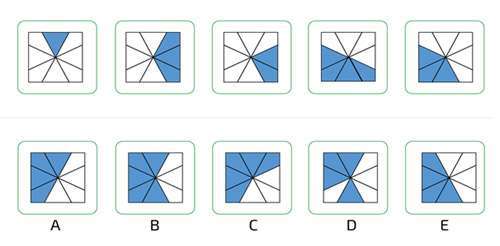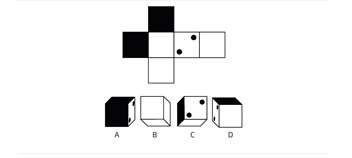
This post provides detailed information, facts, and tips on the TalentLens tests, including practice questions and answers to enable you to effectively prepare for and excel in the TalentLens tests.
Please, read on:
What is TalentLens?
TalentLens is a psychometric test publisher that provides a wide collection of ability tests, personality tests, as well as talent measurement, selection, and development tools.
TalentLens aptitude tests are used by companies in their struggles to determine the most competent candidate suitable for a certain job role.
TalentLens has designed, developed, and published its test based on the needs of various companies.
These tests have assisted greatly in the assessment of your personality and skills as a job candidate and in the determination of whether or not you will be the right match for the job tasks the company will ask you to perform.
TalentLens tests are used immensely to measure the candidates’ critical thinking and reasoning abilities, as well as knowledge and intelligence.
The questions included in the tests may consist of numerical or verbal.
The tests may have some such questions depending on the skills of the candidates that need to be assessed according to the job specifications.
TalentLens is a subsidiary of Pearson Education and has operations in different parts of the world, including North America, Europe, and Australia, and Asia.
Clients of TalentLens include the University of Cambridge, FSTE 100, Fortune 500 companies, as well as public sector organizations and SMEs.
19 Important Facts about TalentLens Test
Here are important facts and tips you need to know about TalentLens:
- TalentLens Tests
There are a lot of tests that TalentLens offers including numerical reasoning, verbal reasoning, and critical reasoning tests. These tests can be used for assessing, screening, and developing candidates.
TalentLens clients also use these tests to evaluate mechanical reasoning, English language, and administration abilities.
The skills the candidates use in answering these questions are not only required in the scoring.
However, accuracy, caution, speed, and the number of right answers are also essential factors.
- Which Industries Use the TalentLens Test for Assessment?
A lot of industries need specific skill sets to be able to get the optimal results from their employees.
Some of the industries that use the TalentLens tests include software, technology, automobile, customer service, and shipping & packaging.
- What types of Jobs are using the TalentLens Test for Assessment?
A lot of companies assess their potential employees based on the TalentLens test.
Google, Deloitte, and 3M are some of the globally recognized Fortune 500 companies that base their assessment on the TalentLens test.
- How Does the TalentLens Test Work?
TalentLens test assesses a number of major skills in an individual. Some of the skills assessed include administration, mechanical reasoning, verbal reasoning, and numerical reasoning.
The overall score of all the various sections of the test provides the last assessment of the candidate.
At the TalentLens assessment center, there is a wide collection of tests that help determine and assess specific skills and abilities of a candidate.
In addition, the TalentLens personality questionnaires recognize a candidate’s values, working style, attitude, and other personal traits that help identify best-fit employees.
- How difficult are the TalentLens Tests?
Since TalentLens tests are identifying the personality traits and skills that you already have, they cannot be considered difficult.
However, you need to take some TalentLens practice tests to understand the structure and sample questions, and also have the ability to take the tests within the specified time if you really want to score well.
TalentLens tests don’t require exhausting studying but using practice tests and sample questions to understand the way to take the test in the best way.
- How necessary are the TalentLens Tests for Assessment?
So many big and established companies globally completely depend on the scores of these tests to make a decision about hiring an individual.
As a result, practicing and scoring well on these tests can increase your career opportunities.
These tests plainly declare your personality, skills, and aptitude and show how important they are by reflecting your complete ability as an individual or professional.
- When do I take the TalentLens Tests?
A company will preferably schedule the test for you after the initial screening and interview process.
But it’s important to start taking TalentLens practice tests as soon as possible to understand the structure and types of questions if you are expecting to change the job or start a career.
- What sort of Knowledge or Skills Do I Need to Pass the TalentLens Test?
You must be a critical thinker that is able to reason and make the right decisions in order to score well on the TalentLens tests.
You will need to use your thinking abilities and ensure you don’t take too much time on the test, depending on the specific type of test you are taking.
You need to also consider the importance of having full concentration and attention during the test.
When you have practiced and gone through a number of sample questions, you’ll be able to focus and develop the ability to answer within the time limit.
- The Importance of Preparing for TalentLens Tests
Both big and small organizations are giving attention to the individual abilities of potential employees.
With the help of TalentLens tests, these organizations are able to understand the specific skill sets an individual needs so as to engage with employees and find suitable jobs for them.
Therefore, the TalentLens tests are used to evaluate all your personality traits and reasoning abilities so the employer looking to hire you can understand your full capacities.
With that done, you can get the perfect job that is best suited for your skills and that will assist you to reach the climax of your abilities.
10. What are TalentLens Tests Made to Evaluate?
TalentLens tests assess a number of helpful industry-required cognitive abilities and skills in an individual.
The tests measure administration skills, verbal reasoning, numerical reasoning, mechanical reasoning, and inductive reasoning skills and more.
The overall score of all the various sections gives a final assessment of the individual.
11. How essential are the Talentlens Test Results in Employers’ Hiring Decisions?
There are a lot of large and established organizations worldwide that rely wholly on the scores of these tests to make a decision about hiring an individual.
Practicing and scoring well on these tests can increase your career scope. These tests clearly analyze your skills, aptitude, and personality, and are thus regarded as important since they reflect your full ability as an individual and expert.
12. Why is it important to Practice TalentLens Tests?
Hiring organizations look for individuals with particular skills and abilities that suit certain roles.
They want to understand your inner capabilities to see if you are best suited for the position you are seeking.
Practice will help you pass these tests and so land that perfect job of your dream.
TalentLens tests assess your personality qualities and reasoning abilities to be able to employ the best suit for a specific role.
13. TalentLens Situational Judgment Test
The situational judgment test is part of the tests of TalentLens that is designed to assess an individual against a wide collection of skills and behaviors that are needed for enough performance in a specific job role.
The situational judgment test is appropriate for sales, graduate, and administrative positions.
Candidates are positioned in realistic work conditions where they are required to handle various situations that are likely to appear in a particular job role.
This test evaluates how efficient your decision-making judgment skills can be when confronted with the kind of situations you will regularly meet on the job.
The test typically lasts for 30 to 40 minutes.
14. TalentLens RANRA
Rust Advanced Numerical Reasoning Appraisal (RANRA) is part of TalentLens tests that measures numerical reasoning for managerial and decision-making positions in companies.
RANRA is different from many numerical reasoning tests out there since it uses a format designed to measure higher-level numerical skills that are used for positions that require a high level of numeracy and that involve interpretation, deduction, and evaluation.
15. TalentLens Ravens Progressive Matrices
The Ravens Progressive Matrices is a test that assesses non-verbal abilities like abstract reasoning and problem-solving skills, as well as the ability to learn.
The test is offered in two versions including standard and advanced. The standard contains 28 items and can take up to 47 minutes in approximation, while the advanced version consists of 23 items and can take up to 4 minutes approximately.
16. TalentLens Watson-Glaser Critical Thinking Appraisal
The Watson Glaser test measures a candidate’s skills of comprehension, analysis, and assessment. The test is online-based with 40 items and usually lasts for 30 minutes.
With a combination of recognized assumptions, assessment of arguments, and drawing conclusions, a scored report with scores in 3 sub-areas is created.
17. TalentLens Orpheus Personality Test
This TalentLens Orpheus Personality test is designed to assess a candidate’s personality, as well as evaluating traits that will contribute to an individual’s work performance.
This test also assesses an individual’s fellowship, authority, detail, emotion, and conformity.
It also evaluates a candidate’s strengths and styles along with work orientation, proficiency, disclosure, loyalty, fair-mindedness, initiative, and patience.
18. TalentLens DAT
The Differential Abilities Test Next Generation (DAT) reflects on sub-tests that individually assess numerical reasoning, abstract reasoning, spatial reasoning, and verbal ability.
The tests are usually shorter but produce exceedingly validated results. They are known for measuring aptitude and capability across the general population ability range.
These tests are untimed, but if multiple sub-tests are being taken sequentially they can last for up to 60 minutes.
19. TalentLens SOSIE
TalentLens SOSIE personality test was created to assess an individual’s values and personality traits.
It evaluates the 8 traits that comprise the Big Five factors (OCEAN), 6 interpersonal values, and 6 personal values.
This test is vital for prospective employers as traits and values are connected to job satisfaction.
Also, suitability for a job role or organization culture gives insight into someone’s motivation, organizational commitment, crucial performance, and job satisfaction.
TalentLens Test Practice Questions and Answers
Here are practice questions and answers that will help you in your preparation for TalentLens tests:
Question 1
Below is an example question of a Numerical Reasoning Test for TalentLens DAT Next Generation.
Which year has the lowest proportion of students to non-students living on the University Campus?

The correct answer is 2008. You can work this out thus:
Step 1: Work out the proportion of students to non-students for the years
For the year 2012, calculate it thus: 45,000 / (320 + 3,500) = 11.78
For the year 2011, calculate it thus: 44,000 / (480 + 6,300) = 6.49
For the year 2010, calculate it thus: 44,000 / (520 + 4,500) = 8.76
For the year 2009, calculate it thus: 36,000 / (360 + 3,400) = 9.57
For the year 2008, calculate it thus: 37,000 / (470 + 5,700) = 6.10
Therefore, the correct answer is 2008.
Question 2
Here is an example question of an Inductive Reasoning Test for TalentLens DAT Next Generation:
What comes next in the sequence?

The right answer here is C. Two patterns are to be discovered.
Pattern 1: Each time, the colored box jumps one position clockwise.
Pattern 2: The number of colored boxes maximizes interchangeably with two and then one.
Question 3
Below is an example question of a Spatial Reasoning Test for TalentLens DAT Next Generation:
Select the right 3D object.

A. B. C. D.
The correct answer is A.
Conclusion
Companies use TalentLens tests to foresee performance and evaluate the suitability of a candidate at any level or position.
With TalentLens assessment, you will be able to get a full picture of your candidates and their performance potentials.
This test-publishing company has a wide variety of tests designed to simplify and improve employee attraction and retention.
>> Learn how to make a great score in Aptitude Tests, including IBEW/NJATC electrical aptitude test, situational judgement test, Kenexa, trade apprenticeship, Exxonmobil, civil service, firefighter exam, FBI test, etc. ; prepare for the test with free but effective practice tests.












